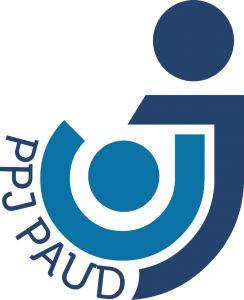PENGARUH ISLAMIC GAMES DALAM MENGEMBANGKAN NILAI AGAMA ANAK USIA DINI DI ERA PANDEMI COVID-19
DOI:
https://doi.org/10.30736/jce.v5i1.507Keywords:
Islamic Games, Religious Values, Early Childhood, Covid-19 Pandemic,Abstract
This study contains about the application of islamic games in developing the religious value of early childhood in the era of pandemic covid-19. This type of research method uses experimental research with design that is experimental design with non-equivalent type control group design. This research was conducted in November to December 2020 with subjects is children aged 4-5 years in Purwosari Village, Kwadungan Subdistrict, Ngawi Regency with a total of 14 research subjects. The indicators of judgment in this assessment are (1) knowing the religion they follow, (2) praying before and after doing activities, (3) knowing God and His Creation, (4) distinguishing good and bad behavior, (5) imitating the movement of worship in the right order. The results of this study were in the control group obtained an average value (mean) pretest 1.28 and posttest 1.42, t paired t-test value as much as -2,534. While in the experimental group obtained an average value (mean) of 1.42 in the pretest and posttest 3.28. The t paired t-test value is -12,790. From the results of both groups (control and experimentation) obtained t independt t-test value of -11,277 and significance value of 0.000 So it can be said that the application of islamic games is able to develop the religious value of early childhood (4-5 years) is significantly.References
Aisyah, S. (2009). Perkembangan dan Konsep Dasar Pengembangan Anak Usia Dini. Tangerang Selatan: Universitas Terbuka.
Azizah, E. dkk .(2021). Teori Belajar Pembelajaran Anak Usia Dini. Banyumas: Pena Persada.
Dimyati, M.(2012). Belajar dan Pembelajaran. Jakarta: Rineka Cipta.
Dirjen PAUD dan Dikmas.(2015). 10 Pedoman Penerapan Kurikulum 2013. Jakarta: Kemendikbud.
Huda, L, dkk (2020). Menanamkan Nilai-Nilai Islami Pada Anak Usia Dini 3-6 Tahun Melalui Metode Bermain Peran. Raudhatul Athfal: Jurnal Pendidikan Anak Usia Dini, 4(2), 181-191.
Kholish, N.(2011). Dongkrak Kecerdasan Otak Anak Usia Emas. Yogyakarta:Real Books.
Malahayati. (2009). 50 Permainan Melatih Kecerdasan Anak. Surabaya:Nusantara Publisher.
Mumtaz, F.(2011). Mendongkrak Kecerdasan Anak Melalui Bermain dan Permainan. Yogyakarta:Ar-Ruzz Media.
Nawafilaty, T. (2017). Penanaman Nilai-Nilai Agama Melalui Media Bermain Puzzle Pada Anak Usia Dini. Al-Hikmah: Indonesian Journal Of Early Childhood Islamic Education, 1(1), 25-36.
Rahayu, L.(2010). Fun Activities For Toddler. Surakarta:Indiparent.
Rasyid, H, dkk (2012). Asesmen Perkembangan Anak Usia Dini. Yogyakarta: Gama Media.
Rinarki, A.(2018). Pendidikan dan Bimbingan ABK. Bandung: Remaja Rosdakarya.
Sugiyono.(2012). Metode Penelitian Pendidikan Pendekatan Kuantitatif, Kualitatif, dan R&D. Bandung: Alfabeta.
Suyadi. (2010). Psikologi belajar PAUD. Yogyakarta: Pedagogia.
Topan R & Fatah Y (2018). Game Edukasi Menghafal Doa-Doa Harian Sebagai Media Belajar Untuk Anak Usia Dini Berbasis Android. Emitor: Jurnal Teknik Elekro, 18 (02), 42-48.
Zaskia, A & Sugianto, B. (2018). Meningkatkan Nilai-Nilai Agama dan Moral Anak Melalui Metode Bermain Peran Di Kelompok B1 TK Mutiara Hati Kendari. Jurnal Riset Golden Age PAUD UHO, 1(2), 64-69.
Downloads
Published
How to Cite
Issue
Section
License
Please find the rights and licenses in JCE (Journal of Childhood Education). By submitting the article/manuscript of the article, the author(s) agree with this policy. No specific document sign-off is required.
1. License
Use of articles will be governed by the Creative Commons Attribution - ShareAlike license as currently displayed on Creative Commons Attribution-ShareAlike 4.0 International License.
2. Author(s)' Warranties
The author warrants that the article is original, written by stated author(s), has not been published before, contains no unlawful statements, does not infringe the rights of others, is subject to copyright that is vested exclusively in the author and free of any third party rights, and that any necessary written permissions to quote from other sources have been obtained by the author(s).
3. User Rights
JCE (Journal of Childhood Education)'s spirit is to disseminate articles published are as free as possible but there is a little payment for publication. Under the Creative Commons license, JCE (Journal of Childhood Education) permits users to copy, distribute, display, and perform the work for commercial purposes. Users will also need to attribute authors and JCE (Journal of Childhood Education) on distributing works in the journal and other media of publications.
4. Co-Authorship
If the article was jointly prepared by more than one author, any authors submitting the manuscript warrants that he/she has been authorized by all co-authors to be agreed on this copyright and license notice (agreement) on their behalf, and agrees to inform his/her co-authors of the terms of this policy. JCE (Journal of Childhood Education) will not be held liable for anything that may arise due to the author(s) internal dispute. JCE (Journal of Childhood Education) will only communicate with the corresponding author.
5. Miscellaneous
JCE (Journal of Childhood Education) will publish the article (or have it published) in the journal if the article’s editorial process is successfully completed. JCE (Journal of Childhood Education)'s editors may modify the article to a style of punctuation, spelling, capitalization, referencing and usage that deems appropriate. The author acknowledges that the article may be published so that it will be publicly accessible and such access will be free of charge for the readers as mentioned in point 3.
JCE (Journal of Childhood Education) by Universitas Islam Lamongan is licensed under a Creative Commons Attribution-ShareAlike 4.0 International License.Based on a work at http://journalfai.unisla.ac.id/index.php/jce.













